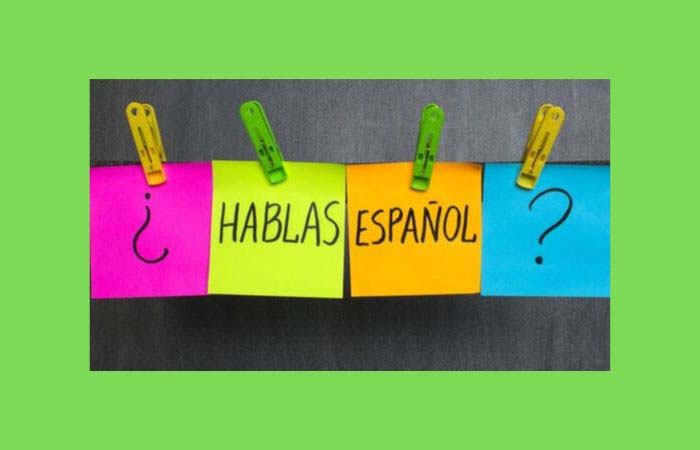Conditions

trastorno de personalidad
Personality disorder
“Parece que el actor sufre un trastorno de personalidad.” = “It appears the actor suffers a personality disorder.”
creer en
To believe in
“¿Tú crees en Dios?” = “Do you believe in God?”
Tregua
Truce
“Los soldados respetan la tregua.” = “The soldiers respect the truce.”
Hablar bajo la condición de anonimato
To speak anonymously
“Alguien habló con el reportero bajo la condición de anonimato..” = “Someone talked to the reporter anonymously.”
Hacer juego con
To match with (clothing)
“La blusa no hace juego con la falda.” = “The blouse doesn’t go with the skirt.”
Estar en rebaja
To be on sale
“Las camisetas están en rebaja.”
a tu alcance
within your reach
“Sí, está a tu alcance.” = “It’s within your reach.”
quedarse dormido
to fall asleep
“Me quedé dormido” = “I fell asleep.”
estar rodeado
To be surrounded by
“La casa está rodeada de árboles.” = “The house is surrounded by trees.”
llevar la cabeza pelada
to have a shaved head
“Muchos soldados llevan la cabeza pelada. “ = “Many soldiers have shaved heads.”
me da en la nariz que…
to have a feeling that…
“Me da en la nariz que van a llegar tarde.” = “I have a feeling they are going to arrive late.”
tan pronto como
as soon as
“Yo normalmente ceno tan pronto como llegan mis hijos.” = “I normally eat dinner as soon as my kids arrive.”
haber que
to be necessary
“Hay que ver el nuevo museo.” = “It is necessary to see the new museum.”
tener el estómogo pesado
to be bloated
“Yo tengo el estómago pesado.” = “I am bloated.”
por un rato
for a little time
“Quédese aquí por un rato.” = “Stay here for a little bit.
a pesar de que
despite
“A pesar de que el estado de Alaska es grande, no hay muchas habitantes.” = “Despite the fact that Alaska is big, there aren’t a lot of people.”
por lo pronto
at the moment
“Por lo pronto, estoy soltero.” = “For the moment, I am single
la hora pico
the busy time
“No manejo en la autopista durante la hora pico.” = “I don’t drive on the highway during rush hour
tener a mano
to have handy or on you
“¿Qué se necesita tener a mano al presentar la solicitud de admisión?” = “What does one need on hand to turn in the admissions application.”
volverse
to become something
“Me volví loco cuando vi a mi novia con mi mejor amigo.” = “I went crazy when I saw my girlfriend with my best friend.
cerrada con llave
locked
“La puerta está cerrada con llave.” = “The door is locked.
llevar una vida tranquila
lead a quiet or calm life
“Me gustaría llevar una vida tranquila muy lejos de aquí.” = “I’d like to live a quiet life far from here.
llueve sobre mojado
it is one thing after another
“Yo perdí las llaves de mi auto y se me olvidó la tarea. Llueve sobre mojado.”= “I lost my keys and I forgot my homework. It is just one thing after the other.
Reírse a carcacadas
to laugh out loud
“Me reí a carcajadas cuando se cayó mi amigo.” = “I laughed out loud when my friend fell.
Parecer a
To look like
“Roberto parece a su hermano.” = “Roberto looks like his brother.”
Estar a gusto
To be at ease
“Hoy estoy a gusto.” = “Today I am at ease.”
Así es la vida
such is life
“No te preocupes tanto. Así es la vida” = “Don’t worry so much. That’s life.”
En cambio
On the other hand
“En cambio, la casa de Jose es grande.” = “On the other hand, Jose’s house is big.”
Sentir pena por
To feel sorry for
“Sentí pena por mi hermano.” = “I felt sorry for my brother.”
Hasta las narices
fed up to here
Estoy hasta las narices con este trabajo que tengo.” = “I’ve had it up to here with this work I have
Dar por sentado
To take for granted
Lo daba por sentado. = I took it for granted.
Estar al día
To be up to date
“No estoy al día con las noticias de hoy.” = “I am not up to date on today’s news.”
Tener sueño
To be tired.
“Yo tengo sueño después de trabajar mucho.” = “I am tired after working a lot.”
Estar parejos
To be even
“Sara y Mari están parejas. Ninguna se destaca por encima de la otra.” = “Sara and Mary are even. Neither one has an advantage over the other.”
Llevarse bien con
To get along well with.
“Me llevo bien con mi hermano.” = “I get along well with my brother.”
Tener sobre peso
To be overweight.
“Cerca de dos tercios de la población estadounidense tienen sobrepeso” = Close to two thirds of the US population is overweight.”
Estar en apuros
To be in trouble.
“Eduardo está en apuros con el director de la escuela.” = Eduardo is in trouble with the principal of the school.”
Echar de menos
To miss.
“Te echo de menos. Llámame el lunes.” = I miss you. Call me on Monday.”
